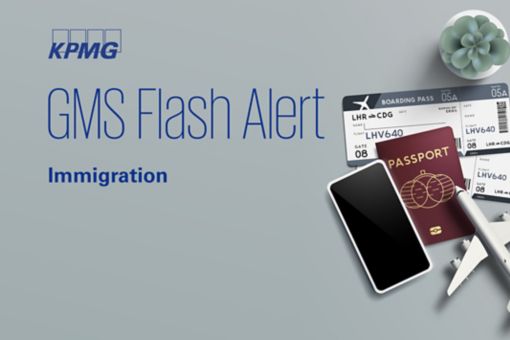United States – Injunction Upheld to Block Health-Care Requirement for Immigrants
US – Injunction Upheld to Block Health-Care Requirement
A recent decision of the Ninth Circuit to uphold the U.S. District Court’s preliminary injunction prevents the health-care rule outlined in the presidential proclamation of October 4, 2019, from being implemented while it is still the subject of litigation. That proclamation aims to restrict certain immigrants from entering the U.S. without either coverage under an approved health insurance plan within 30 days of entering the U.S., or sufficient funds to pay reasonably foreseeable medical costs.

On May 4, 2020, the United States (U.S.) Court of Appeals for the Ninth Circuit denied the Trump administration’s attempt to stay a District Court injunction that halts enforcement of a presidential proclamation which would restrict certain foreign nationals from immigrating to the U.S. without either coverage under an approved health insurance plan within 30 days of entering the U.S., or sufficient funds to pay reasonably foreseeable medical costs.
The majority decision of the Ninth Circuit panel stated that the public interest lies with maintaining the status quo while the legal challenge to the proclamation is pending. The decision, written by Chief Judge Sidney R. Thomas, further noted that “In short, the record evidence shows that the impact of uninsured immigrants on uncompensated healthcare costs is minimal, and that many of the affected immigrants could obtain health insurance if permitted to look beyond the plans and 30-day limitation in the Proclamation. The government has submitted no evidence disputing these points.”1
WHY THIS MATTERS
The health-care requirement, if implemented, would effectively create a health insurance “mandate” for individuals applying for an immigrant visa at a U.S. Consulate or Embassy. The decision of the Ninth Circuit to uphold the District Court’s preliminary injunction prevents enforcement of the health-care rule while it is still the subject of litigation.
Background
The proclamation at issue, Presidential Proclamation on the Suspension of Entry of Immigrants Who Will Financially Burden the United States Health Care System, was issued on October 4, 2019, and was intended to take effect on November 3, 2019.2
Soon after President Trump signed the proclamation on October 4, 2019, it was challenged by the Latino Network and several individual U.S. citizens who initiated proceedings in the U.S. District Court for the District of Oregon. The plaintiffs requested a preliminary injunction to stop the government from enforcing the proclamation while litigation is pending. The Court subsequently granted a nationwide preliminary injunction on November 26, 2019.3 The federal government then sought to block that injunction, requesting a stay from the Ninth Circuit Court of Appeals. Now that the Ninth Circuit has denied the request for a stay, it is expected that the Trump administration will appeal the matter to the U.S. Supreme Court.
KPMG NOTE
Broader Context for Related Matters Involving the Judiciary
Although the Ninth Circuit’s ruling has little immediate consequence given that immigrant visa processing at U.S. Consulates and Embassies is currently suspended due to the global coronavirus pandemic, the decision sets the stage for certain lawsuits that are currently pending against the Trump administration, including the challenge to the Proclamation Suspending Entry of Immigrants Who Present Risk to the U.S. Labor Market During the Economic Recovery Following the COVID-19 Outbreak, signed on April 22, 2020.4
Considerations for Immigrant Visa Applicants
In case the U.S. Supreme Court allows the federal government to enforce the health-care rule while the challenge to the presidential proclamation of October 4, 2019 is pending, immigrant visa applicants may consider available options for U.S. health insurance coverage and/or determine how foreseeable medical costs relating to any existing medical condition(s) would be paid.
FOOTNOTES
1 See “Presidential Proclamation on the Suspension of Entry of Immigrants Who Will Financially Burden the UnitedStates Healthcare System,” President Donald Trump, October 4, 2019. For prior coverage, see the following issues of GMS Flash Alert: 2019-153 (October 8, 2019) and 2019-168 (November 8, 2019).
2 See https://www.courthousenews.com/wp-content/uploads/2019/11/ImmigrantHealthCareRule-prelimINJ.pdf for the District Court’s decision to grant a preliminary injunction on November 26, 2019.
3 See “Proclamation Suspending Entry of Immigrants Who Present Risk to the U.S. Labor Market During the Economic Recovery Following the COVID-19 Outbreak,” President Donald Trump, April 22, 2020. For prior coverage, see the following issues of GMS Flash Alert: 2020-198 (April 27, 2020) and 2020-211 (April 30, 2020).
VIEW ALL
* Please note that KPMG LLP (U.S.) does not provide any immigration services or legal services. However, KPMG Law LLP in Canada can assist clients with U.S. immigration matters.
The information contained in this newsletter was submitted by the KPMG International member firm in Canada.
SUBSCRIBE
To subscribe to GMS Flash Alert, fill out the subscription form.
© 2025 KPMG LLP, a Canadian limited liability partnership and a member firm of the KPMG network of independent member firms affiliated with KPMG International Cooperative (“KPMG International”), a Swiss entity. All rights reserved.
GMS Flash Alert is a Global Mobility Services publication of the KPMG LLP Washington National Tax practice. The KPMG name and logo are trademarks used under license by the independent member firms of the KPMG global organization. KPMG International Limited is a private English company limited by guarantee and does not provide services to clients. No member firm has any authority to obligate or bind KPMG International or any other member firm vis-à-vis third parties, nor does KPMG International have any such authority to obligate or bind any member firm. The information contained herein is of a general nature and is not intended to address the circumstances of any particular individual or entity. Although we endeavor to provide accurate and timely information, there can be no guarantee that such information is accurate as of the date it is received or that it will continue to be accurate in the future. No one should act on such information without appropriate professional advice after a thorough examination of the particular situation.
